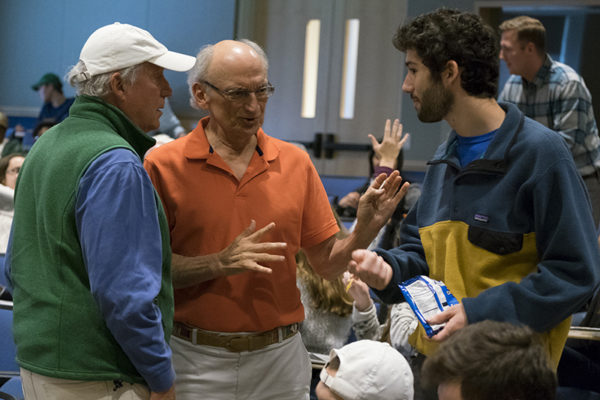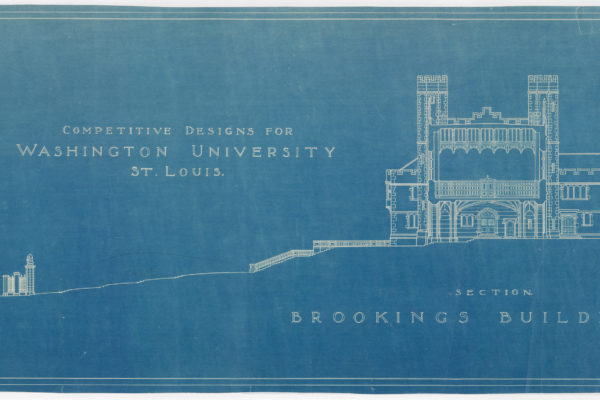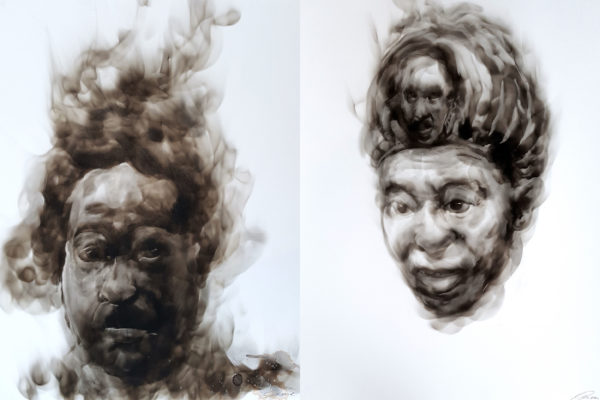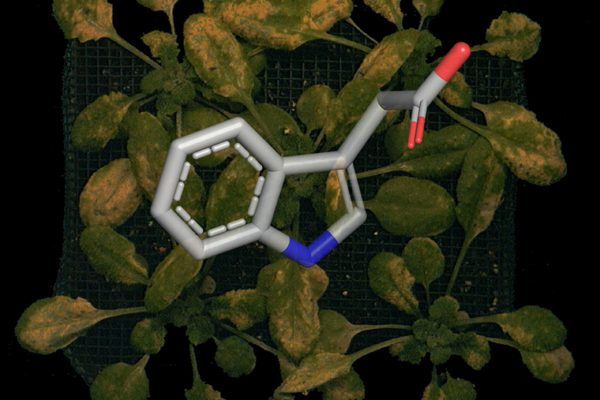Plan will reduce the allure of home ownership
Overall, aspects of the tax-reform package will reduce the attractiveness of home ownership and mortgages, and it may even adversely affect home prices going forward.
Study finds strategies to encourage 50 percent tax-refund saving
In a research paper set for publication in the journal Behavioral Science & Policy, a team of researchers including two from Washington University in St. Louis demonstrated that — by structuring the messaging in the right way — those taxpayers can be encouraged to save their returns for long-term needs or unforeseen emergencies.
Beyond Boundaries gives students, faculty, space to experiment
The Beyond Boundaries interdisciplinary program at Washington University in St. Louis offers first-year students a wide array of experiences: exposure to new concepts and people; opportunities to learn from some of the world’s leading scholars across a spectrum of disciplines; and something a bit less tangible.
Body clock disruptions occur years before memory loss in Alzheimer’s
Washington University School of Medicine researchers have found that circadian rhythm disruptions occur much earlier in people whose memories are intact but whose brain scans show early, preclinical evidence of Alzheimer’s.
The genius of a place
For more than a century, the area between Brookings Hall and Skinker Boulevard has served as a welcoming “front door” to Washington University’s Danforth Campus. This spring, the Mildred Lane Kemper Art Museum will explore the area’s evolution, as well as the complex relationship between planning, building design and construction, with “Transformative Visions: Washington University’s East End, Then and Now.”
Diane Victor, drawing with smoke
South African artist Diane Victor, who is known for her delicate, ephemeral-seeming portraits of missing children, AIDS clinic patients and other vulnerable populations, will launch the Sam Fox School of Design & Visual Art’s spring Public Lecture Series with a free talk Monday, Feb. 5.
Record expansion of U.S. hate groups slows under Trump administration
As President Donald Trump prepares to offer his first State of the Union address, a new analysis by a Washington University in St. Louis sociologist may explain why the pronounced, decades-long expansion of U.S.-based hate groups has slowed to a crawl during the first year of his administration.
Sun Pharma Advanced Research Co. commits $10 million to drug development
The School of Medicine is joining with Sun Pharma Advanced Research Co. (SPARC) to support new drug development through the university’s Center for Drug Discovery and the Skandalaris Center for Interdisciplinary Innovation and Entrepreneurship. SPARC will provide $10 million to fund the Skandalaris Center’s LEAP Inventor Challenge and provide drug development expertise to researchers pursuing the commercialization of new pharmaceuticals.
Plotting the path of plant pathogens
In a sneak attack, some pathogenic microbes manipulate plant hormones to gain access to their hosts undetected. Biologists at Washington University in St. Louis have exposed one such interloper by characterizing the unique biochemical pathway it uses to synthesize auxin, a central hormone in plant development.
WashU Spaces: University architect James Kolker
In its third installment, WashU Spaces visits the office of James Kolker, university architect and associate vice chancellor. Kolker shares his vision for the east end, why he loves the bunny and his first reaction to the campus’ rosy hue.
View More Stories









